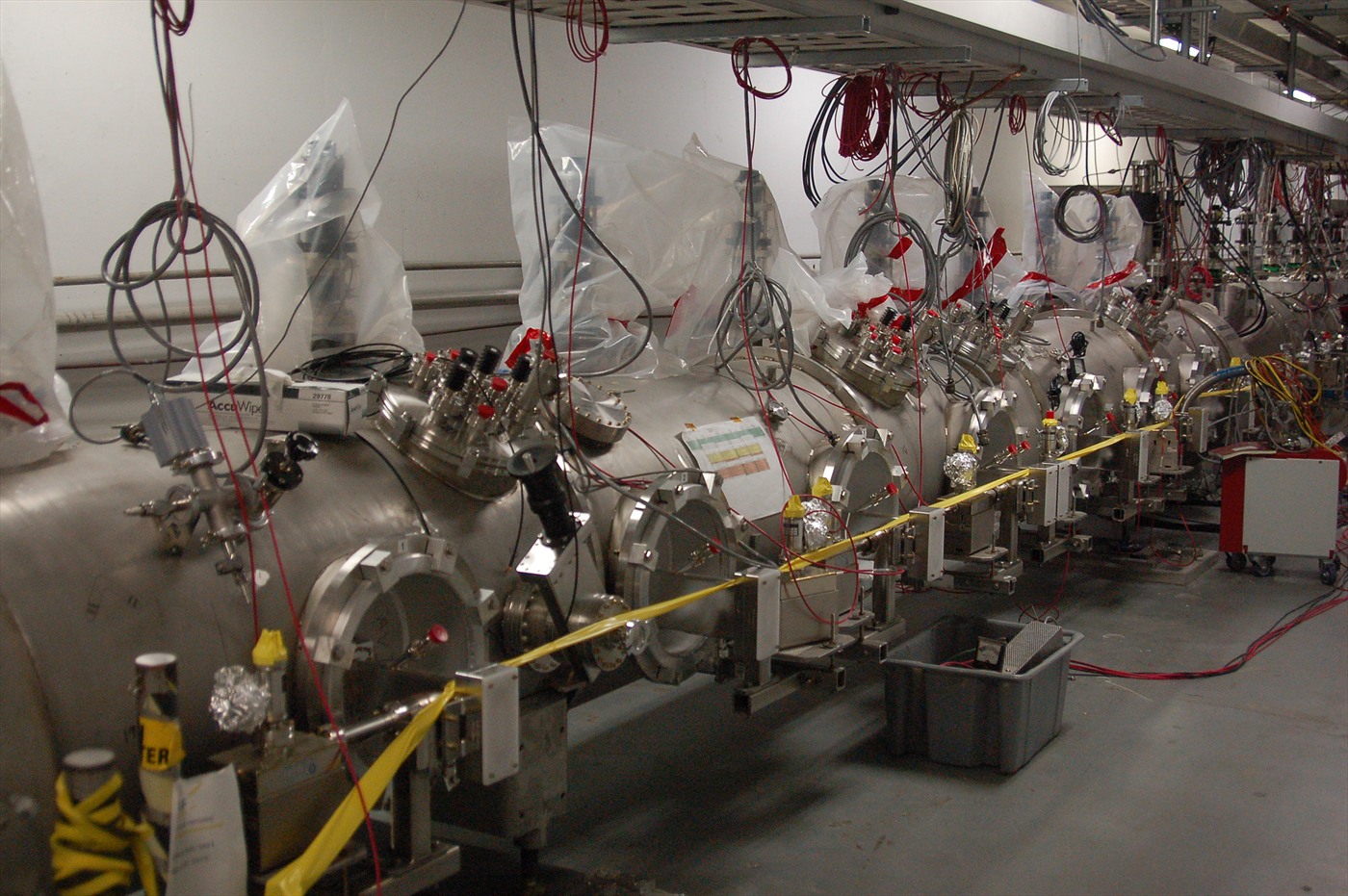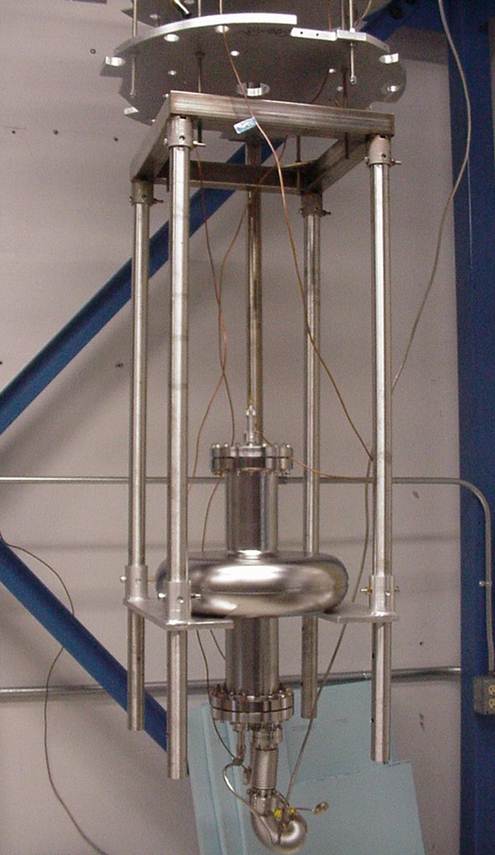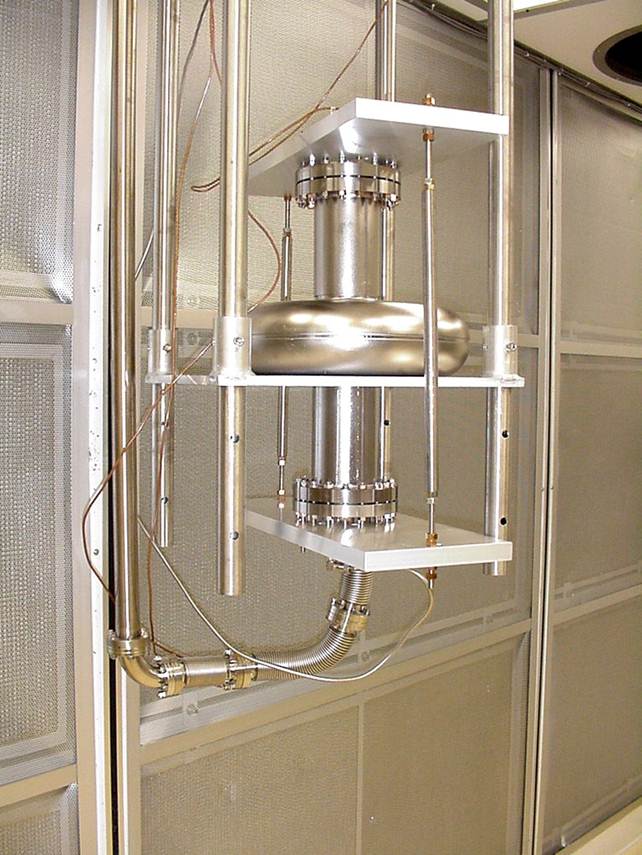The SRF Institute (consisting of SRF S&T and SRF Ops departments) is responsible for the design, production, refurbishment, test and installation of superconducting radio-frequency (SRF) cavities and cryomodules, and all beam line vacuum for CEBAF, LERF and UITF. The institute also produces and tests SRF cavities, parts and cryomodules for R&D projects and for other national and international facilities such as the Spallation Neutron Source, Oak Ridge, and the Linac Coherent Light Source-II, Stanford.
The SRF Institute participates in the worldwide advance of superconducting radiofrequency (SRF) science and technology. We are working to raise the effectiveness of particle accelerators and accelerator-driven sources of specialized light -- tools that benefit not only researchers, but also engineers and technologists, in fields ranging from particle physics and the life sciences to materials science and industry.
Contacts:
Rongli Geng
SRF S&T Department Head
geng@jlab.org, 757-269-6790
Tony Reilly
SRF Ops Department Head
areilly@jlab.org, 757-269-5348
Admin Support:
Zeynep Ceribasi
ceribasi@jlab.org, 757-269-4703

Other projects:
Crab Cavity:
Development of a deflecting mode cavity for short pulsed X-Ray experiments. The intention is to produce proof of principle and the hardware necessary for the short pulsed X-Ray experiment.
650 MHz Prototype Cavity:
Development of this cavity is part of the high power proton linac development by Fermi Lab for their long baseline neutrino physics program. The intention is to integrate the beta = 0.6 cavity shape into the Fermi Lab design helium vessel, while optimizing the stiffener ring location and calculating the pressure loads on the cavity.
Unstiffened Cavity

Stiffened Cavity

ILC 9-cell Cavity Process and Testing:
Conducting processing and testing of 9-cell bionium cavities for ILC gradient R&D. The intention is to understand the gradient quench limit and field emmission limit at low and high gradient and improve the gradient and yield in real 9-cell cavities.
Nb Film Creation:
This project will establish the scientific basis for attained Nb film crystal structure character as a function of substrate, thermal, and ion energy growth conditions as well as key material prospects for possible SIS multilayer film. The intention is to lead to lower cost SRF systems for particle accelerators.
Q-Value Improvement:
Furnace with Nb Can


